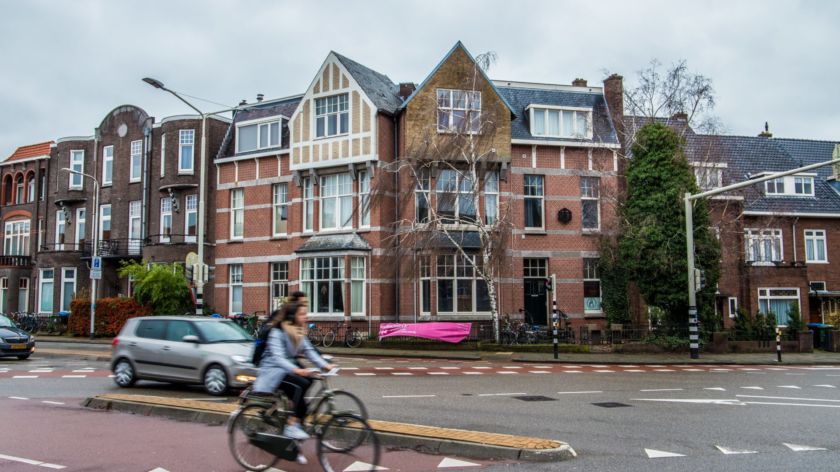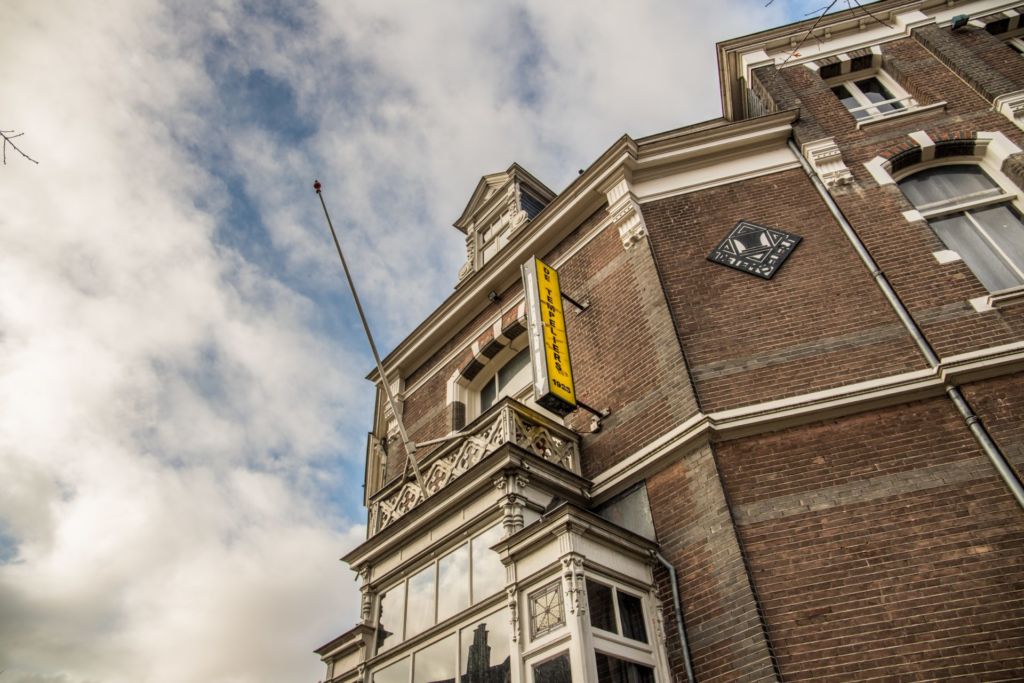Seven fraternity and sorority houses rented illegally and at risk
 Het Melkhuis at de Groesbeekseweg. Photo: Tom Hessels
Het Melkhuis at de Groesbeekseweg. Photo: Tom Hessels
Most of the privately rented fraternity and sorority houses in Nijmegen have no permit for room rental. Data provided by the Omgevingsdienst Regio Nijmegen (ODRN) shows this. If the city does not legalise these buildings, the fraternity and sorority members will have to leave their houses.
De Tempeliers, THOR, Elegast, De Gong, AVIS and DIANA. These are the fraternities and sororities without a conversion permit for their houses. This permit is necessary to legally rent out rooms. Fraternity Aquila has two ‘houses’: one corridor in SSH& complex Jacob Canisstraat (legal) and a city building in the Jan van Goyenstraat (illegal).
At fraternity Panacee and sororities FIERA and MARIKEN, the owners have their permit sorted out. The third category are the fraternities that are managed by SSH& – they do not need a permit.
Livability
For two years now, the city has a stricter policy for room rental. In the first half of 2018, city officials gave house owners who did not have a permit for room rental six months to come forward. After that, the ODRN started checking buildings. Whoever did not have a permit, had to apply for one – if they didn’t, they could get a fine.
The seven fraternity and sorority houses that are rented out illegally, have to apply for one now. Some of them have already done that, like Elegast and THOR. However, without success: the municipality has denied them a permit last year.
No fear for SSH& buildings
Since the 1st of January, housing corporations like SSH& are excluded from the requirement of applying for a conversion permit. Fraternities Baldr, Wing, Durendal, Olifant, Hoek and Omnivagus do not have to fear for their survival. What’s remarkable, is that SSH& already felt like it did not need a permit for its buildings. About Durendal, on the Staringstraat, owned by SSH& since 1958, manager Vincent Buitenhuis said last year: ‘Having a conversion permit is not necessary, because there is no conversion (and there was no conversion in 1958).’ This exact argument is used by Samuel Vermeulen to dismiss the permit requirement of THOR.
Elegast’s application has been refused because there are multiple catering establishments in the immediate vicinity of its building in the city centre. The combination of student housing and bars and restaurants endangers the livability, says the city. What Elegast’s next steps are, is unknown – this fraternity wasn’t available to comment.
Punches
The house presidents of De Tempeliers and De Gong tell Vox that they haven’t applied for a permit, because they were convinced they didn’t need one. Now, they had a visit from an ODRN inspector, who officially established that there were more than three people living in their houses. A letter followed. ‘The city did not pull its punches,’ says Celis Tittse of De Gong. ‘In all kind of legal language, they told us that we could be evicted if we didn’t apply for a permit.’

De Gongs building, just like De Tempeliers’, is owned by a foundation which is managed by former fraternity members. It will cost the foundations a lot of money to apply for a permit, says Tittse. For example, an acoustic investigation has been done, to establish how much noise nuisance comes from a building. ‘That costs 900 euros. Applying for a permit costs another 1000.’
‘No exception’
And there are no guarantees that the permit is actually granted. This worries De Gong members a lot, says Tittse. ‘If we do not get it, we have to sue the municipality.’ But the fraternity does not want that, says the president. ‘That will cost a lot of time and money.’
City councilor Harriët Tiemens tells Vox that the city makes no exceptions for fraternities and sororities. Since the 1st of January, there is an exception for living communities, where residents are partial owners of the building. ‘But for fraternities, this became way to complicated’, says Tiemens. ‘There are all kinds of fraternities and sororities. It is hard to regulate that, you step into a swamp.’
Kamerbreed: owners are naive or shameless
Ralf Nieuwenhuijsen, of association ‘Kamerbreed’, a platform that has been fighting illegal room rental since 2013, is surprised by the large number of fraternities that live in houses without a permit. ‘The owners knew that new policies were being made and had the chance to use the “repentance ruling” during the first half of 2018’, he says. According to Nieuwenhuijsen, the fact that fraternities failed to do so show ‘immense shamelessness or naivety’. In December, Kamerbreed and platform Wedren-Julianapark gave councilor Tiemens 100 enforcement requests for buildings they suspected were illegally rented out. That way, the platforms want to force the city to take measures against illegal buildings.



